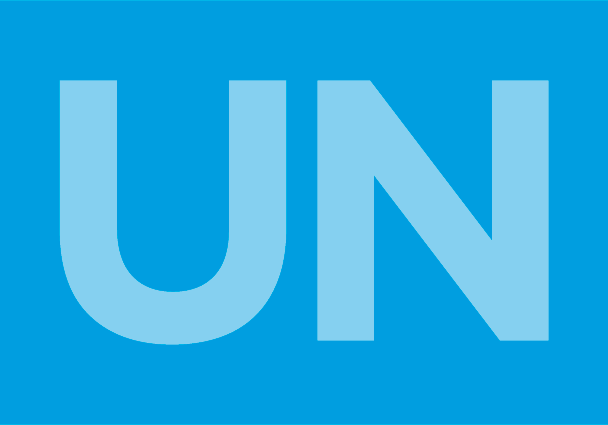
Mar 23, 2016 | Incidencia
Declaración oral ante el Consejo de Derechos Humanos.
“La Comisión Internacional de Juristas quiere referirse al informe del Alto Comisionado sobre Colombia. Pese a los avances en las negociaciones de paz entre el Gobierno y las Fuerzas Armadas Revolucionarias de Colombia (FARC), creando nuevas instituciones y mecanismos, seguimos preocupados sobre las garantías a los derechos a la justicia y a la verdad de las víctimas y la posibilidad que se consagre la impunidad. Los acuerdos estipulan que las informaciones recabadas por la Comisión de la Verdad y la Unidad Especial de Búsqueda de Personas Desaparecidas, no podrán ser entregadas a la Jurisdicción Especial para la Paz, ni ésta podrá requerirlas. Ello es contrario a los estándares internacionales en la materia y en particular los Principios actualizados para la protección y la promoción de los derechos humanos mediante la lucha contra la impunidad.
Asimismo, el llamado procedimiento de “contraste” establecido para la Jurisdicción Especial para la Paz, para aquellos que tempranamente reconozcan sus crímenes y responsabilidad, no garantiza la realización de investigaciones exhaustivas ni tampoco una participación activa de las víctimas en los procedimientos, socavando sus derechos a un recurso efectivo, a la justicia y a la verdad. Igualmente, los lineamientos sobre la aplicación de la Jurisdicción Especial para la Paz a los agentes del Estado, dado a conocer por el Gobierno en diciembre de 2015, estaría socavando el principio de responsabilidad penal del superior jerárquico.
Mi organización ve con profunda preocupación que la cuestión de las garantías de no repetición, esencial para la justicia de transición, no haya sido considerada durante la negociación. Las reformas institucionales relativas a la separación de la Policía Nacional del Ministerio de Defensa, la desmilitarización de los cuerpos de seguridad del Estado, la depuración administrativa de la Fuerza Pública y la revisión de la doctrina militar – típicas medidas de garantías de no repetición –están ausentes en este proceso de negociación.
La Comisión Internacional de Juristas exhorta al Gobierno y a las FARC a garantizar plenamente en el Acuerdo Final, y en la legislación que lo implementará, los derechos a la justicia y a la verdad de las víctimas y a excluir toda modalidad de impunidad, de conformidad con el Derecho internacional.”
Declaración leída por: Sr Carlos López
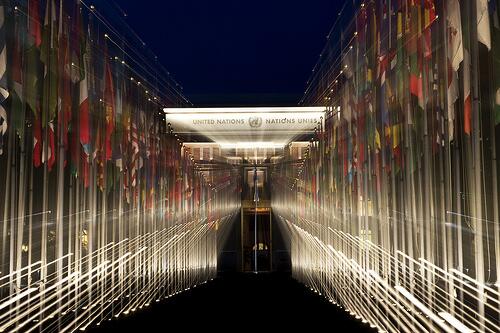
Mar 23, 2016 | Advocacy, Non-legal submissions
Today, the ICJ made a submission to the Human Rights Council’s Working Group on the Universal Periodic Review in advance of the Human Rights Council’s review of Uganda in October/November 2016.
In its submission, the ICJ expressed concern about the detrimental impact of the adoption and enforcement of the Anti-Homosexuality Act, 2014; the effect of pre-existing and extant criminalization of consensual same-sex sexual conduct; and the introduction of the Prohibition of Promotion of Unnatural Sexual Practices Bill, on the respect for and the protection and realization of human rights in Uganda.
A copy of the submission can be found here:
Uganda-ICJ CESCR submission-Advocacy-non legal submission-2015-ENG (full text in PDF)
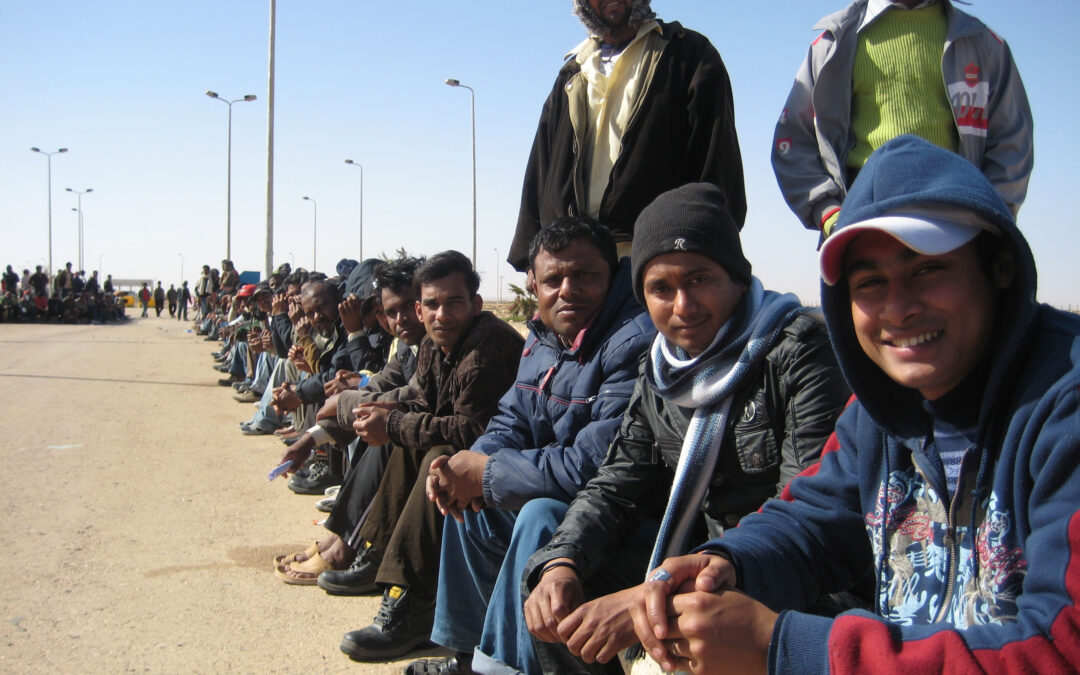
Mar 21, 2016 | News
The ICJ today expresses serious concern that the deal concluded on Friday 18 March between the European Union and Turkey on the return of migrants and refugees to Turkey is likely to lead to serious violations of international and EU human rights and refugee law.
“This initiative carries high risks of infringing the right of asylum and the prohibition of non-refoulement, as well as the right to an effective remedy for potential violations of these rights”, said Róisín Pillay, Director of the ICJ Europe Programme.
All EU Member States, including Greece, have obligations to protect these rights under international human rights law, and Member States and EU institutions have similar obligations under the EU Charter of Fundamental Rights.
The agreement seeks to establish swift return from Greece to Turkey of any migrant or asylum seeker attempting to reach Greece who does not apply for international protection there or whose application is deemed unfounded or inadmissible.
In order to facilitate such returns, Turkey may be declared to be a “safe third country” which could allow for the dismissal of asylum requests in Greece based on this element alone, and the rapid return of applicants.
The EU and Turkey, in their joint statement, contend that these operations will not be carried out in violation of international and EU law, including the prohibition of collective expulsions and the principle of non-refoulement, which prohibits return to a country where the returned person faces a real risk of torture or other serious violation of human rights.
It is nevertheless unclear how the system proposed could lead to swift returns, while respecting international human rights and refugee law, the EU Charter of Fundamental Rights and the EU Asylum Procedure Directive, for a number of reasons.
First, the ICJ stresses that Turkey cannot be considered a “safe third country” for the return of migrants and refugees.
Authoritative reports and international jurisprudence on Turkey demonstrate that neither the general human rights situation in Turkey, nor its asylum procedure and reception system are in line with international law, including Turkey’s obligations under the European Convention on Human Rights’ prohibition of inhuman and degrading treatment in article 3 ECHR.
Second, the ICJ affirms that the commitment of Turkey to adapt its asylum system to comply with international law and standards does not in itself allow for returns from EU countries in compliance with the principle of non-refoulement.
International and EU law binding on Greece and other EU Members States requires an assessment of the situation in the country of return at the moment the return is effected to determine whether there is a real risk of violations of human rights.
Therefore, at present, and irrespective of the commitments made on reform, any return to Turkey would be at high risk of infringing the principle of non-refoulement and the returning country’s legal obligations.
Crucially for the prospects of the new system, it is also clear that the Greek asylum system is not in a position to proceed to a swift consideration of asylum applications in compliance with human rights, including procedural guarantees.
“As is clear from ongoing Council of Europe discussions about implementation of European Court decisions against Greece, the Greek asylum procedure cannot yet provide for an effective remedy for cases of arbitrary refoulement. Without respect for such guarantees, many migrants will be left vulnerable,” said Massimo Frigo, Legal adviser at the ICJ.
The ICJ emphasises that, whatever co-operative arrangements are put in place, Greece and Turkey will have responsibility under international human rights and EU law as regards the rights of persons subject either to Greek or Turkish territorial jurisdiction or to Greek or Turkish authority and/or control.
Furthermore, through its direct involvement in and financing of these arrangements, the EU itself may be complicit in any breach of the right of asylum, the prohibition of collective expulsions, the prohibition of non-refoulement or the right to an effective remedy.
The ICJ is further concerned at the “one for one” resettlement mechanism that will be established to settle one Syrian refugee in a EU country for every Syrian returned to Turkey.
It is of serious concern that this mechanism contemplates the return of Syrians to Turkey. Syrians are prima facie entitled to international protection and would likely fall within one of the grounds of international protection of the EU Qualification Directive.
It would therefore be unlawful under EU law to return them to Turkey.
Full text and additional information on the content of the deal available here.
Contact
Róisín Pillay, Director, Europe Programme, roisin.pillay(a)icj.org
Massimo Frigo, Legal adviser, Europe Programme, massimo.frigo(a)icj.org
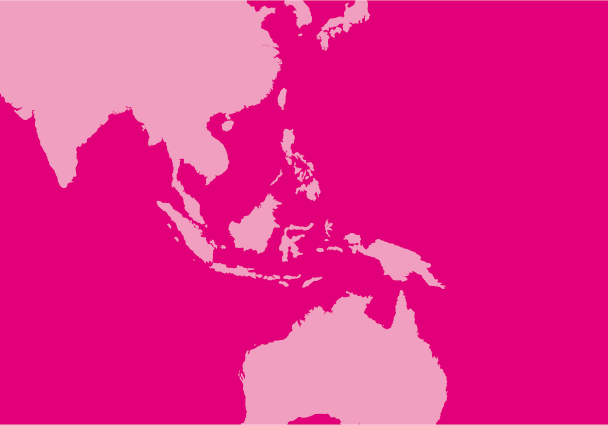
Mar 21, 2016 | News
The Maldives must stop undermining the independence and integrity of the judiciary through arbitrary and politically motivated actions against judges, the ICJ said today.
“The ICJ visited the Maldives last month for the second time in a year, and we were dismayed to see that the Maldives government has continued to erode the rule of law and weaken the independence of the judiciary,” said Nikhil Narayan, ICJ’s Senior Legal Adviser for South Asia.
“The government must immediately stop targeting judges and other public officials with arbitrary criminal proceedings, threats, intimidation and harassment,” he added.
On 7 February, Magistrate Judge Ahmed Nihan was arrested, along with former Prosecutor General and former Criminal Court Judge Muhthaz Muhsin, in connection with an alleged ‘forged’ arrest warrant against President Yameen.
“The arrest of a judge for issuing a warrant, a function which is well within the ordinary powers and responsibilities of the judiciary, clearly violates basic principles of judicial independence,” Narayan further said. “The fact that the alleged warrant was against the President further suggests that Judge Nihan’s arrest was politically motivated.”
“Moreover, the severity of a charge of ‘terrorism’ for such an act, even if taken at face value, cannot reasonably be viewed as proportionate to the alleged offense,” he added.
On 16 March, more than a month after his arrest, Judge Nihan was charged under sections 4(a)(1)-(2) and 5(a)(2) of the Prevention of Terrorism Act, for attempting to unduly influence the state, attempting to create fear among the public, and attempting to forcefully disappear or hold a person hostage.
The Constitution of the Maldives does not provide immunity for the president from criminal accountability even while still in office.
The ICJ was also concerned to find during its visit that Maldivian authorities have continued to undermine the independence of the judiciary by using the threat of transfer or removal of judges as a tactic of political retribution, harassment and intimidation.
On 14 February, former Criminal Court Chief Judge Abdullah Mohamed was abruptly transferred from the Criminal Court to the Family Court following a sudden and late night meeting of the Judicial Service Commission (JSC), without being given an opportunity to appear on his own behalf during the meeting.
While the JSC has given no reasons for its decision, lawyers, human rights defenders and former government officials with whom the ICJ spoke suggested that the transfer had been taken in retaliation for Judge Abdullah’s failure to remand former Prosecutor General Muhsin following his arrest.
It was also suggested by those interviewed that a further motivation for the transfer was to ensure that Judge Abdullah could not indirectly influence the three-judge bench hearing the former Vice President’s criminal case in favor of the defendant. Judge Abdullah was reported to have close ties with both defendants.
In June 2015, Judge Azmiralda Zahir, one of only three female judges in the entire Maldivian judiciary and the only woman on the High Court, was arbitrarily and unexpectedly transferred by the Supreme Court from the Malé appellate bench to the southern regional bench, a transfer that amounts to a demotion, without formal notice or opportunity to challenge her transfer.
The Supreme Court has neither established clear criteria for its decision-making process in such matters nor informed Judge Zahir of the reasons for her transfer, of which she learned through media reports, despite repeated requests by her to both the Supreme Court as well as the JSC, the ICJ says.
“President Yameen’s government must quickly take genuine steps to restore the rule of law, strengthen the independence and integrity of the judiciary and restart the democratic transition process,” said Narayan.
Contact:
Nikhil Narayan, ICJ Senior Legal Adviser for South Asia, t: +977 9813187821 ; e: nikhil.narayan(a)icj.org
Read also:
Maldives: political crisis erodes rule of law and human rights
Maldives: arrest of Judge Ahmed Nihan further erodes judicial independence
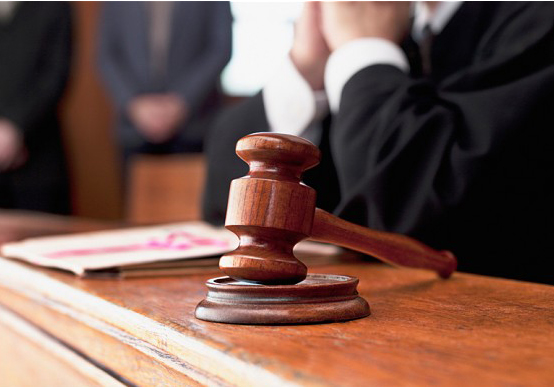
Mar 21, 2016 | News
Thailand’s National Council for Peace and Order (NCPO) must end its interference in the elections of the president and committee members of the Lawyers Council of Thailand (LCT), the ICJ and Thai Lawyers for Human Rights (TLHR), said today.
The LCT in turn must ensure the elections are conducted in a fair and impartial manner.
“International standards explicitly prohibit external interference in the elections of the executive body of a lawyers’ professional association by its members, and the association’s leadership must ensure that such elections are conducted in a fair and impartial manner” said Matt Pollard, the Head of the ICJ’s Centre for the Independence of Judges and Lawyers. “Ensuring the independence and democratic representation of the legal profession is essential to safeguarding human rights and the rule of law, especially in the current circumstances of military rule in Thailand.”
On 29 February 2016, Mr Wichien Choobtaisong, a representative of the electoral group of the current LCT President, Mr. Dej-udom Krairit, wrote to the NCPO “seeking permission” to hold meetings and campaigns for the LCT’s regularly-scheduled elections, referring to the NCPO’s ban on political gatherings of more than five persons.
On 16 March 2016, the NCPO replied, stating that the elections “contradict” the ban on political gatherings, which “must apply equally to all groups and sectors in the interest of maintaining national security during the transition period,” and taking the position that that the elections must accordingly be postponed with the current committee continuing its term until elections are held. The NCPO’s reply also notes it received a letter from the LCT on 14 December 2015, which the ICJ and TLHR have not seen.
In its letter, the NCPO referred to NCPO Announcement 7/2014, which bans the political gathering of more than five persons (Announcement 7/2014 was later replaced by Order 3/2015). The ICJ reiterates that these arbitrary and unjustified orders and announcements should be repealed, and calls on the NCPO, in any event, to immediately withdraw its letter of 16 March, replacing it with written confirmation that the LCT elections will be able to proceed as scheduled, without external interference.
The LCT must then put in place procedures to ensure the elections proceed as scheduled and in a fair and impartial manner.
“Since the military took power, we have seen a marked increase in the number of individuals requiring legal aid for sensitive and political cases,” said Yaowalak Anuphan, the Head of TLHR and member of the LCT. “In this environment, it is even more essential that the Lawyers Council of Thailand is able to exercise its functions without external interference and that everyone has effective and equal access to the legal services of lawyers.”
Contacts
In Bangkok: Kingsley Abbott, International Legal Adviser for Southeast Asia, t +66 94 470 1345 ; e: kingsley.abbott(a)icj.org
In Geneva: Matt Pollard, ICJ Senior Legal Adviser, t: +41 22 979 38 12 ; e: matt.pollard(a)icj.org
Background
The Lawyers Council of Thailand was established in 1957. Its mandate and responsibilities are set out in the Lawyers Council Act 1985.
The objectives of the Council include maintaining the ethics of lawyers, promoting legal education and providing legal assistance.
It also registers lawyers and issues them with licenses to practice law in Thailand. Members of the Council elect the president and committee members every three years.
Article 24 of the Basic Principles on the Role of Lawyers, adopted by the UN in 1990, sets out that: “Lawyers shall be entitled to form and join self-governing professional associations to represent their interests, promote their continuing education and training and protect their professional integrity.
The executive body of the professional associations shall be elected by its members and shall exercise its functions without external interference.”
Among other things, the UN Basic Principles also affirm that ensuring all persons have effective access to legal services provided by an independent legal profession is essential for adequate protection of human rights and fundamental freedoms.
They note the vital role of professional associations of lawyers including in protecting their members from persecution and improper restrictions and infringements. The Basic Principles specify that governments should respect and reflect the provisions of the Basic Principles in their national legislation and practice.
The UN Human Rights Committee has applied the Basic Principles as a necessary component of the right to a fair trial guaranteed in Article 14 of the International Covenant on Civil and Political Rights (ICCPR), to which Thailand is a State Party.
The UN Committee will review Thailand’s compliance with the ICCPR at an upcoming meeting.
Thailand-ICJ and TLHR statment on LCT-News-press releasess-2016-THA (full text in Thai, PDF)








